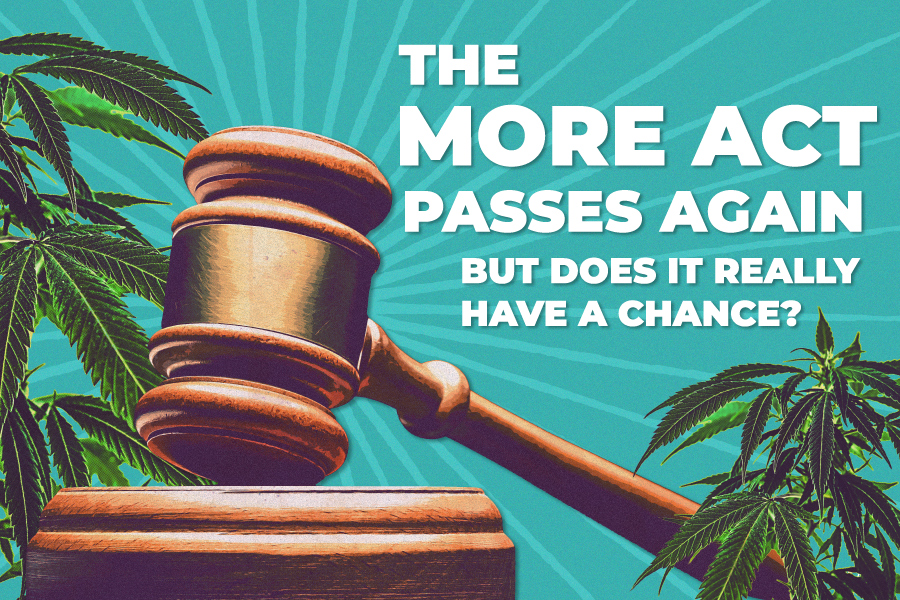On Friday, the U.S. House of Representatives approved the Marijuana Opportunity, Reinvestment, and Expungement (MORE) Act—a federal cannabis legalization bill—for the second time in history. While the auspicious move is a win for the cannabis industry and community, advocates are hesitant to celebrate just yet.
The House previously passed the MORE Act in 2020, but the bill died in the Senate. Because the bill passed on Friday now needs 60 votes in the Senate, including 10 from Republicans, many are concerned that the MORE Act will meet the same fate that it did in 2020.
Regardless of the outcome of this latest attempt at federal cannabis legalization, it’s clear that America’s stance on cannabis is shifting dramatically. The MORE Act is just one of multiple initiatives to end cannabis prohibition that are currently circling Congress, demonstrating America’s desire to correct the wrongs of the decades-long war on drugs.
Cannabis Prohibition Never Should Have Been
Back in 1939, New York Mayor Fiorello Henry La Guardia ordered a commission to conduct an in-depth study on the potential effects of smoking cannabis. This was the first study of its kind in the United States. The results of the LaGuardia Committee Report on Marijuana were released in 1944. These results echo what is still being preached by cannabis experts today:
“In 1944, the New York Academy of Medicine issued an extensively researched report declaring that, contrary to earlier research and popular belief, use of marijuana did not induce violence, insanity or sex crimes, or lead to addiction or other drug use.”
Fast forward about 30 years to the 1970s, and we see history repeat itself when President Richard Nixon appointed Gov. Raymond P. Shafer of Pennsylvania to lead a commission to study the effects of marijuana. Nixon made it clear that he was hoping for a negative when he stated, “I want a goddamn strong statement about marijuana…I mean one on marijuana that just tears the ass out of them.”
Instead, he received a report that echoed the LaGuardia Committee Report on Marijuana. The Shafer Commission Report on Marijuana recommended the decriminalization of marijuana possession in the U.S. Just like the LaGuardia Committee Report on Marijuana, The Shaffer Commission’s conclusion was ignored by the government.
Ever since cannabis was classified as a Schedule I substance under the Controlled Substances Act (CSA) of 1970, it has remained federally illegal in the U.S., leading to thousands of unnecessary arrests, convictions, and even deaths from dangerous illicit market products. Despite tremendous work by the cannabis community and promises from the current U.S. president to decriminalize the plant, it’s still unclear if and when cannabis will be federally recognized as having medical use.
The MORE Act Gains More Momentum
The MORE Act seeks to remove cannabis from the CSA, instate a federal cannabis tax, and expunge cannabis-related convictions. House Majority Leader Steny Hoyer (D-Md.) stated, “This bill is a matter of justice and equal opportunity,” according to Marijuana Moment. “It’s about addressing systemic inequities and reforming our criminal justice system so that Americans and America can become a better, stronger, more fair, and more just America.”
At a time when debt and costs are rising drastically in the U.S. and across the globe, cannabis legalization could bring a much-needed inflow of revenue. It would also increase access to medical cannabis for patients who need it the most. However, it’s highly possible that the MORE Act will fail to make it through the Senate due to antiquated views of cannabis or disagreements about the bill’s specific provisions.
Make sure to follow Veriheal for updates on the MORE Act and other pieces of cannabis legislation.
Author, Share & Comments















